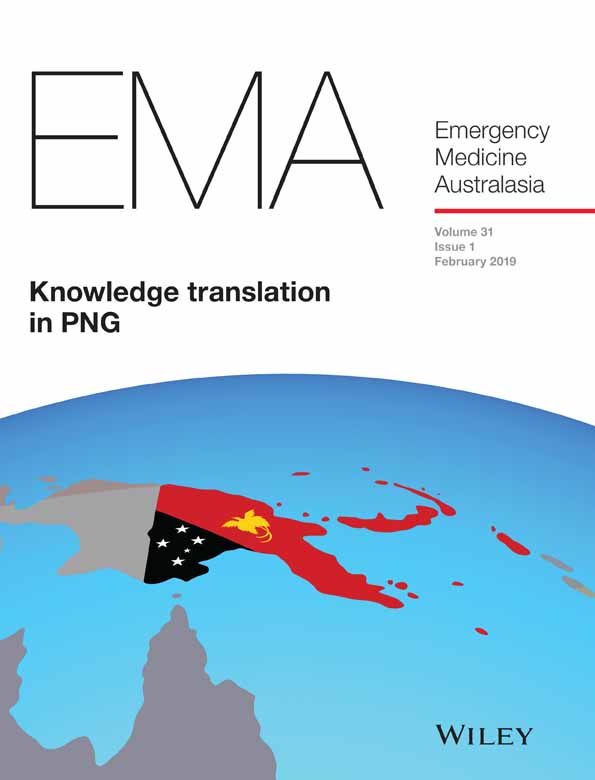Review article: Managing medical emergencies in rural Australia: A systematic review of the training needs
Abstract
The aim of the study was to determine the training needs of doctors managing emergencies in rural and remote Australia. A systematic review of Australian articles was performed using MEDLINE (OVID) and INFORMIT online databases from 1990 to 2016. The search terms included ‘Rural Health’, ‘Emergency Medicine’, ‘Emergency Medical Services’, ‘Education, Medical, Continuing’ and ‘Family Practice’. Only peer-reviewed articles, available in full-text that focussed on the training needs of rural doctors were reviewed. Data was extracted using pre-defined fields such as date of data collection, number of participants, characteristics of participants, location and study findings. A total of eight studies published from 1998 to 2006 were found to be suitable for inclusion in the analysis. Six studies cited the results of self-reported questionnaires and surveys, one used a telephone questionnaire on a hypothetical patient and one utilised a theoretical examination. The studies found a significant proportion of participants wanted more emergency training. Junior rural doctors were found to have deficiencies in knowledge about stroke. Emergency skills doctors wanted more training including: emergency ultrasound, paediatric/neonatal procedures and cricothyroidotomy. However, many of the studies were performed by training providers that may benefit from deficient results. Given that the data was over 10 years old and that advances have been made in knowledge, training opportunities and technology, the implications for current training needs of rural doctors in Australia could not be accurately assessed. Thus there is a need for further research to identify current training needs.




